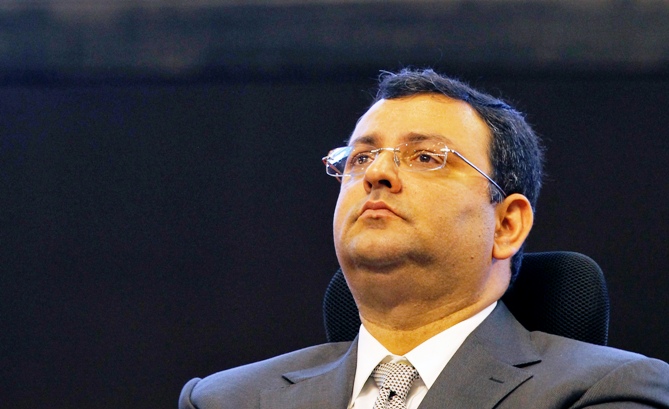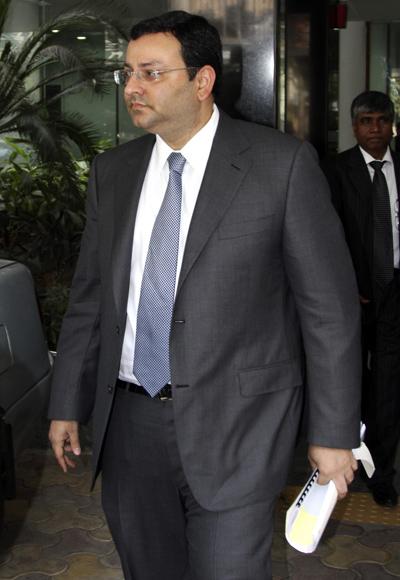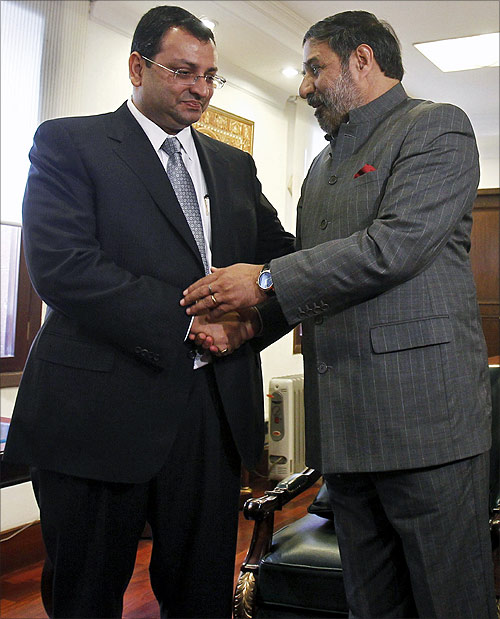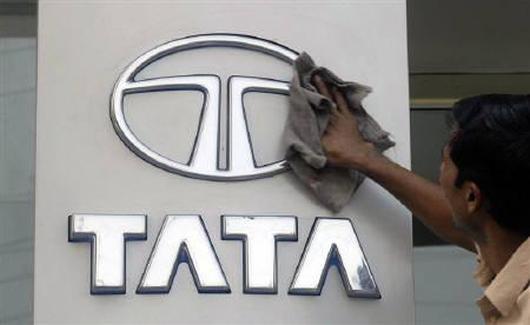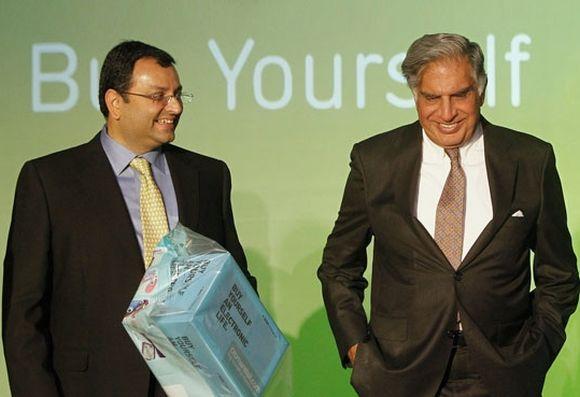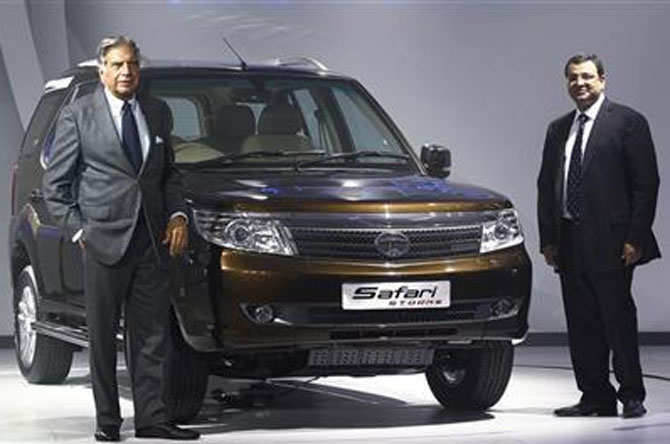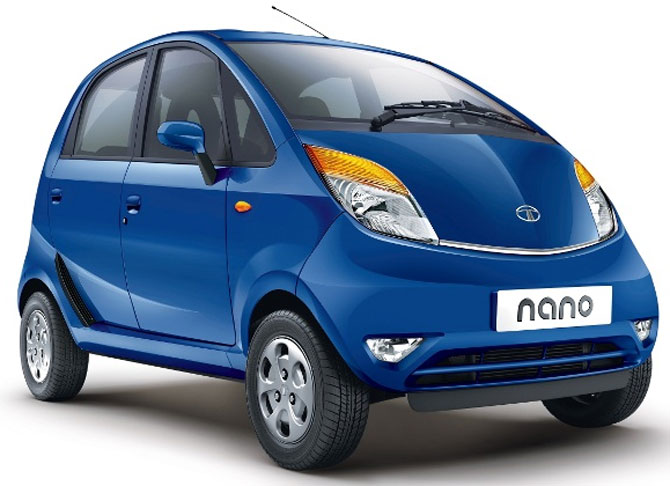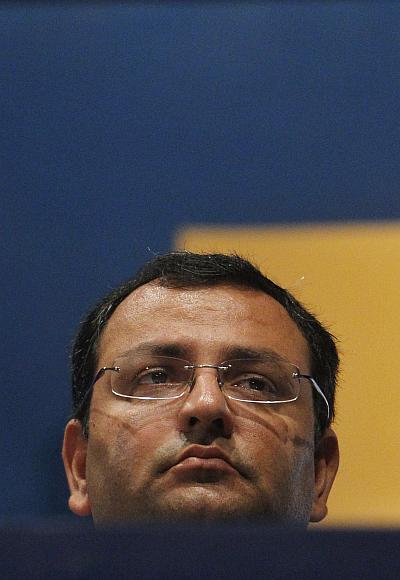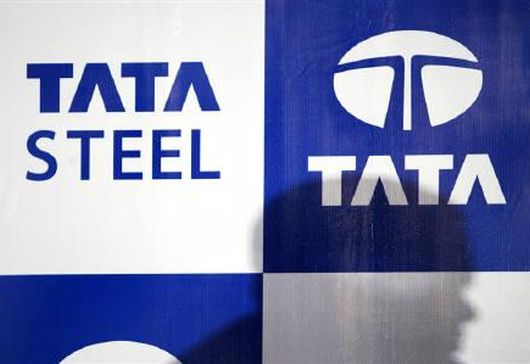 | « Back to article | Print this article |
The Mistry innings: Captain gets his eye in
At a convention in Chennai earlier this month, Tata Consultancy Services Chief Executive Officer N Chandrasekaran saw several hands rising from the audience.
It comprised 400 Tata group managers, all eager to ask him questions on the presentation he had just finished.
Among those waiting for his turn was Cyrus Mistry.
Friends of the 45-year-old Tata Sons chairman, who completes a year in office this Saturday, say this is typical of the man -- understated and someone who allows his CEOs to steal the limelight.
True to this form, Mistry, who presides over the $100-billion group, with around 100 operating companies, rarely speaks in public.
His main appearances have mainly been at company functions, where he prefers to come without fanfare.
Click NEXT to read further. . .
The Mistry innings: Captain gets his eye in
Besides, he has appeared in several annual general meetings, where he has been articulate.
Many might consider this an extra-charitable view of a few of Mistry’s friends.
People who have heard him speak say he has yet to develop the gravitas and charm of his predecessor.
But Mistry’s well-wishers say that’s an unfair comparison.
“A year is too short a time to compare him with his predecessor.
“In any case, he is now too busy in understanding the challenges of a group which deals in as varied a product range as salt to software.
“He has been travelling almost non-stop to wherever the Tata group’s businesses are located,” his well-wishers say.
Click NEXT to read further. . .
The Mistry innings: Captain gets his eye in
The consensus view about Mistry so far is this: He is an excellent numbers man, very hard-nosed in the way he approaches things, a voracious reader, someone willing to put a premium on innovation and always willing to roll up his sleeves.
His efforts are also directed at consolidating and getting more from existing businesses.
If tough decisions are the order of the day, so be it.
Consider his decision to prompt the Tata Steel management to announce a $1.6-billion write-down, an acknowledgement that it overpaid for Corus, in 2006.
Also, last month, he decided to halt the group’s ego trip on Orient-Express, abandoning the nearly $1.2-billion bid for the Bermuda-based hospitality company amidst a slowdown in global demand for luxury travel.
Click NEXT to read further. . .
The Mistry innings: Captain gets his eye in
Earlier this month, the group withdrew from the race to set up a bank, after it became obvious that losses outweigh benefits.
But Mistry hasn’t hesitated in seeding new businesses as well.
He brought to fruition his predecessor’s dreams of getting into aviation.
The group, which has invested a little more than $10 billion over three years, intends to go ahead with similar investments over the next two years, both in India and globally.
Mistry’s main focus, experts agree, is clearly on consolidation.
“Mistry has taken issues head-on.
“He is a realist and with the years ahead of him as chairman, he knows his vision has to be long term,” says Zia Mody, senior partner of AZB & Partners.
Click NEXT to read further. . .
The Mistry innings: Captain gets his eye in
“Mistry is now in consolidation mode, while Tata was expansionist. Both strategies are right for their times,” adds Mody, who has worked closely with the Tatas, advising them on its several mergers and acquisitions.
She is bang-on.
Apart from Tata Steel, two other companies, Tata Chemicals and Indian Hotels, also wrote down investments.
Mistry, of course, has quite a few on his to-fix list.
That includes underperformers such as the domestic arm of Tata Motors, Tata Steel and Tata Power.
The chairman obviously believes evolution, rather than revolution, is the way to drive forward.
Click NEXT to read further. . .
The Mistry innings: Captain gets his eye in
Tata Steel Europe, for example, is innovating with a vengeance.
Among its latest is advanced products for light-weighting car components that can reduce end-product weight by up to 35 per cent.
The proportion of high-value differentiated products and services in the company’s sales figure has risen almost 20 per cent in recent months.
There’s more.
Indian Hotels, showing indifferent numbers, is being pushed to move towards an asset-light model, which means more management contract-led expansion.
Tata Power, hobbled by the uncertainty over Indonesian coal, has set its sights on global expansion in Georgia and Vietnam.
Click NEXT to read further. . .
The Mistry innings: Captain gets his eye in
Several challenges remain. For example, the local operations of Tata Motors, including the small car, Nano, are not getting customers to the showrooms.
The company has been criticised for being slow in bringing new products to the market.
In the past five years or so, there has been no new model launch other than the Aria crossover.
To rectify this, the company will be launching two new models next year -- a hatchback and a compact sedan -- to be first showcased at the Auto Expo in Delhi next year.
The real big change will happen in FY16, when products from the new platform would come.
In the months to come, Mistry will also have to tackle Tata Teleservices which is making huge losses and has eroded its net worth completely.
Click NEXT to read further. . .
The Mistry innings: Captain gets his eye in
Group observers say collaboration among its companies to leverage the learnings has gained momentum.
There are examples galore.
Tata Power and Tata Motors are developing an engine that will convert waste to electricity in predominantly rural areas, providing a cheaper substitute to diesel and kerosene.
Tata Elxsi is increasingly getting involved with giving makeovers to Taj properties over the world.
As part of inter-group cross-selling, TCS is winning lucrative group business it used to earlier lose to rivals such as IBM, purely on merit.
D R Dogra, managing director of CARE Ratings sums it up: “Mistry’s calibrated approach to change is quite remarkable”. So far, everybody seems to agree.
Click NEXT to read further. . .
The Mistry innings: Captain gets his eye in
RNT: ON a roll in second innings, too
Just before retirement last year, Ratan Tata had famously said he would not allow his shadow to hang over Bombay House like a ghost walking the corridors.
RNT, as he is known within Bombay House, has walked the talk.
But has that slowed his pace?
Hardly.
Consider the following:
- Unlike his predecessor, JRD Tata, who in 1991 handed over to him the chairmanship of Tata Sons, as well as control of the trusts, RNT continues to retain control of the latter, which together control around 66 per cent of the shares of Tata Sons. As a custodian, he anyway keeps a close watch on the proceedings in the group
- He has mega plans for the Tata trusts in the areas of rural development, water conservation, nutrition for children and pregnant women, as by his own admission, he doesn’t believe in ‘patchwork philanthropy’
- He is president of the Court of the Indian Institute of Science and chairman of the Council of Management of the Tata Institute of Fundamental Research. Besides, he serves on the Prime Minister’s Council on Trade and Industry
Click NEXT to read further. . .
The Mistry innings: Captain gets his eye in
- He also serves on the board of trustees of Cornell University and the University of Southern California, and on the board of trustees of Carnegie Endowment for International Peace
- He is on the board of Alcoa and the advisory boards of Mitsubishi Corporation, JP Morgan Chase, Rolls-Royce, Temasek Holdings and the Monetary Authority of Singapore
- He has already said he would like to attend the annual general meetings of Tata group companies as a shareholder and ask questions.
- And of course, there is a lot of flying to do. Tata himself had piloted a flight with the AirAsia team on board to Delhi
